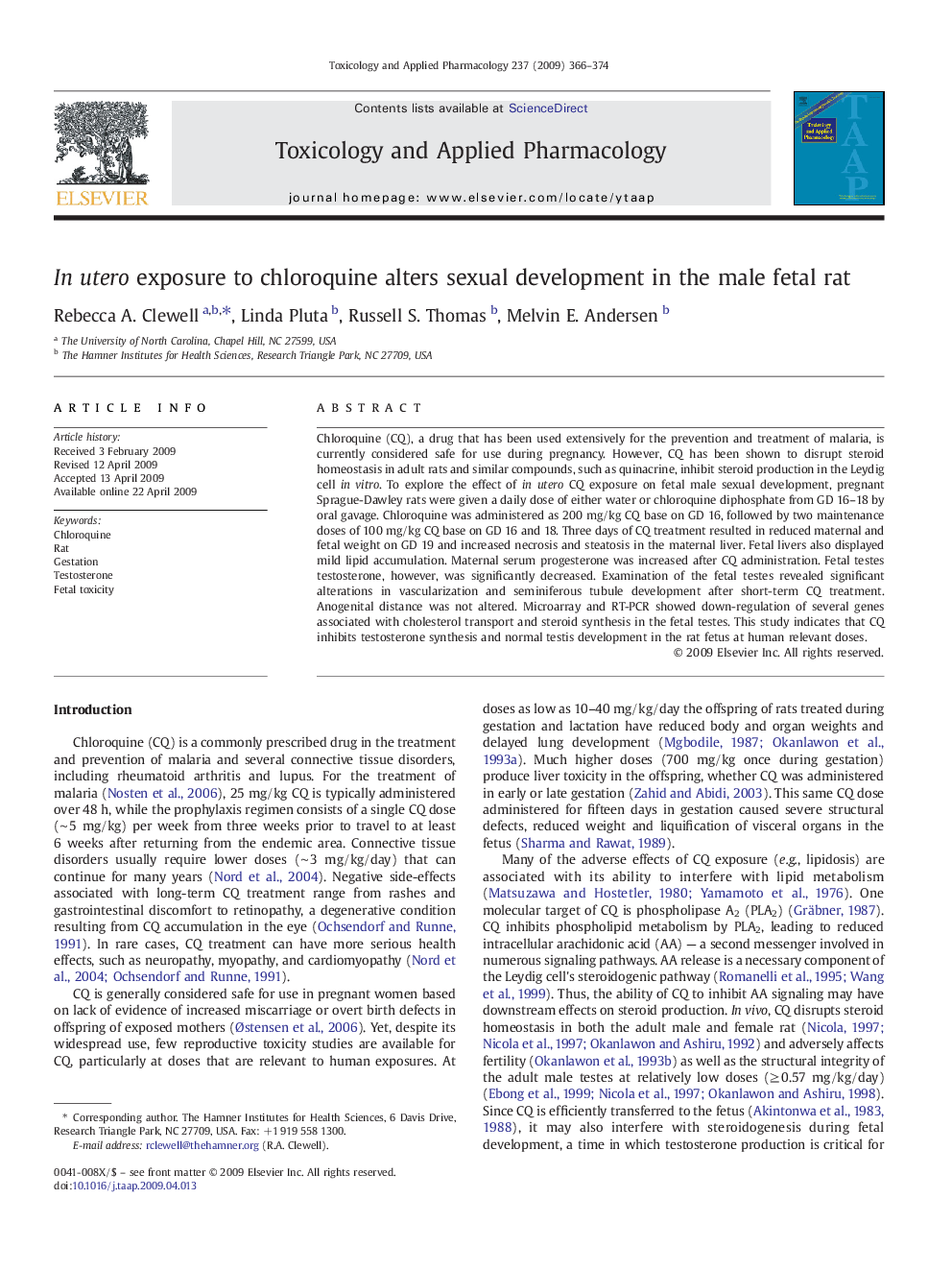| Article ID | Journal | Published Year | Pages | File Type |
|---|---|---|---|---|
| 2570595 | Toxicology and Applied Pharmacology | 2009 | 9 Pages |
Chloroquine (CQ), a drug that has been used extensively for the prevention and treatment of malaria, is currently considered safe for use during pregnancy. However, CQ has been shown to disrupt steroid homeostasis in adult rats and similar compounds, such as quinacrine, inhibit steroid production in the Leydig cell in vitro. To explore the effect of in utero CQ exposure on fetal male sexual development, pregnant Sprague-Dawley rats were given a daily dose of either water or chloroquine diphosphate from GD 16–18 by oral gavage. Chloroquine was administered as 200 mg/kg CQ base on GD 16, followed by two maintenance doses of 100 mg/kg CQ base on GD 16 and 18. Three days of CQ treatment resulted in reduced maternal and fetal weight on GD 19 and increased necrosis and steatosis in the maternal liver. Fetal livers also displayed mild lipid accumulation. Maternal serum progesterone was increased after CQ administration. Fetal testes testosterone, however, was significantly decreased. Examination of the fetal testes revealed significant alterations in vascularization and seminiferous tubule development after short-term CQ treatment. Anogenital distance was not altered. Microarray and RT-PCR showed down-regulation of several genes associated with cholesterol transport and steroid synthesis in the fetal testes. This study indicates that CQ inhibits testosterone synthesis and normal testis development in the rat fetus at human relevant doses.
